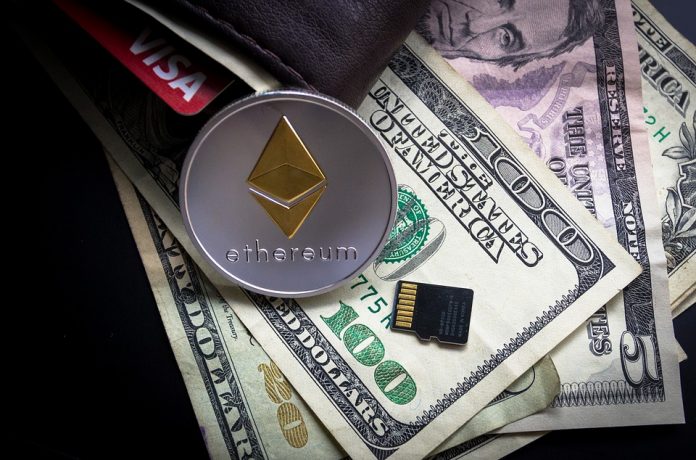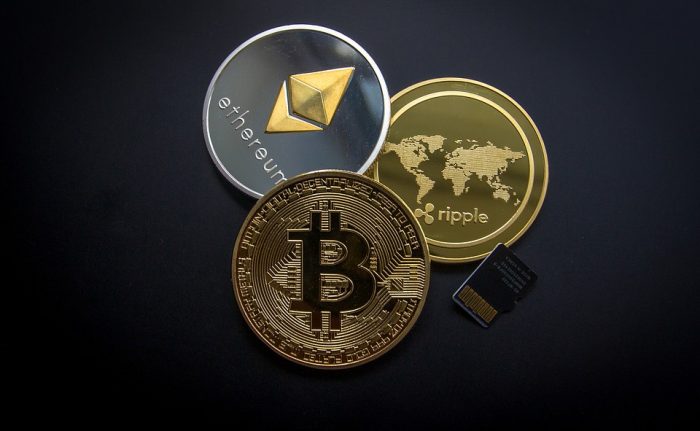The ETH to USD price has topped $1,100, making this the time to earn or buy the digital cryptocurrency if you haven’t yet. But first, it is crucial to understand Ethereum, because it means more than one thing.
Ethereum the Platform
First and foremost, Ethereum provides a decentralized platform for hosting applications called smart contracts. The Ethereum-based smart contracts, or applications, run as coded in an extremely secure environment that precludes censorship, fraud or hacking and provides 100 percent up time. The platform utilizes a custom blockchain design. That means that the data from transactions of any kind in an Ethereum-based app get stored as blocks on the server where they were created. All the separate blocks strung together form the chain or entire record. Each block is irrevocable and unchangeable, once written. It provides for direct, peer-to-peer secure transactions that cut the middle man out of business. Applications or contracts use the language Solidity, developed by a Switzerland-based non-profit the Ethereum Foundation.
Ethereum the Wallet
The Ethereum Wallet provides the interactive gateway to Ethereum platform apps and an e-wallet to house your cryptocurrencies and crypto-assets built on the Ethereum platform. These cryptocurrencies include ether, the base value of Ethereum. You need to download the Ethereum Wallet to work with the Platform if you plan to create contracts as a part of earning, mining and storing ether/Ethereum.
If you just want to buy Ethereum, you can select cold and hot wallets that let you store it along with other cryptocurrencies, such as Bitcoin and various altcoins. A cold wallet stores your cryptocurrency in a gadget about the size of a slim cell phone or USB stick, depending on the model. You connect it via USB and WiFi to make transactions. A hot wallet remains at the ready since it’s an e-wallet that stores your cryptocurrency on servers. Both provide secure means of storage. How often you would like to trade or buy coins determines which wallet to choose. E-wallets come cheaper, but most cold wallet prices stay under $150, making them imminently accessible to investors and traders. Some cold wallet variants include:
- Ledger Nano S – stores Bitcoins, Ethereum and altcoins. It costs about $124.
- Trezor Hardware Wallet – stores Ethereum, Bitcoin and altcoins. It costs about $165.
- KeepKey Hardware Wallet – stores Bitcoins, Ethereum and altcoins. It costs about $125.
For a hot wallet try the official Ethereum issued wallet. The Ethereum-issued wallet puts the private keys in your control, stored on your server. As other means of storing Ethereum, you may choose any web-based cryptocurrency exchange, but, in this case, your private keys will be stored on their servers.
Ethereum the Cryptocurrency
The Foundation funded development of the Ethereum wallet and platform with the pre-sale of its own cryptocurrency, ether, in August 2014. To put digital currency into tangible terms, think in monetary units. You can conceptually think of an ether as a dollar and Ethereum as the system that requires it for payments. Digital cryptocurrencies are spent just like tangible assets. For instance, you can spend the oldest cryptocurrency, Bitcoin, on e-tailers like Overstock.com.
The value of ether continues to rise with minor day-to-day fluctuations. It continuously performs well and remains above the $1,000 to $1,100 mark for a single Ethereum. What drives this strength? The answer lies in the combined power of the Ethereum platform, wallet and cryptocurrency. One ultra secure source using its own development language provides a fully digital solution to what requires a combination of platforms for the traditional e-commerce. In the traditional e-commerce environment, as in traditional bricks-and-mortar finance, one requires a bank, a credit card processor, an e-commerce host, a delivery mechanism at minimum, plus funds. Ethereum provides all of that. Rather than needing Citibank, Paypal, Shopify, e-mail or Dropbox and your own funding, you can create it on Ethereum, just like the Foundation did with ether.
Developing Your Ethereum-based Business
The prime investment time was, of course, August 2014, but you can also get in now if you missed it. You can simply buy, sell and trade ether/Ethereum as a commodity or leverage the larger platform to develop an online business or bank. You can create your own token or cryptocurrency. All crypto-assets developed on the Ethereum platform can use the Ethereum wallet. Many businesses use Ethereum for crowdfunding.
Crowdfunding and other investment uses prove popular due to the built-in escrow component. You can create a contract that holds contributed funds until a specific date or milestone passes. If the milestone isn’t met, the funds automatically revert to the donor. In regard to creating your own token or currency, you can set the total number of tokens in circulation to a fixed or fluctuating amount within the programming. Ethereum’s robotic contracts can only function as programmed. The language leaves no room for human error, intervention or artificial intelligence. The robot may only perform its exact programming by rote.
A Better Ether
Rather than rest on its laurels, the Foundation continues to improve Ethereum. It moves this year to a Proof–of–Stake model that encourages staking the cryptocurrency rather than mining it, referred to as “Proof of Work.” It encourages the transition to holding instead of mining by issuing an annual return of between 5 to 10 percent. This achieves two goals. It greens the cryptocurrency by reducing transactions, each of which uses electricity since it is digital. It also stabilizes the cryptocurrency’s value, ensuring it retains strength.
If you haven’t invested in Ethereum yet, start now. Support the green movement and buy an ether stake. The growing platform and stable currency will thank you with an annualized return. Engage your entrepreneurial side by utilizing the development platform to build a smart contract that provides a valuable tool to the growing peer-to-peer community. Fund your e-commerce undertaking with a custom cryptocurrency. You’ll contribute to decentralizing data and the Ethereum community will “thank you” by sharing its ether with you.
Find a Home-Based Business to Start-Up >>> Hundreds of Business Listings.


















































